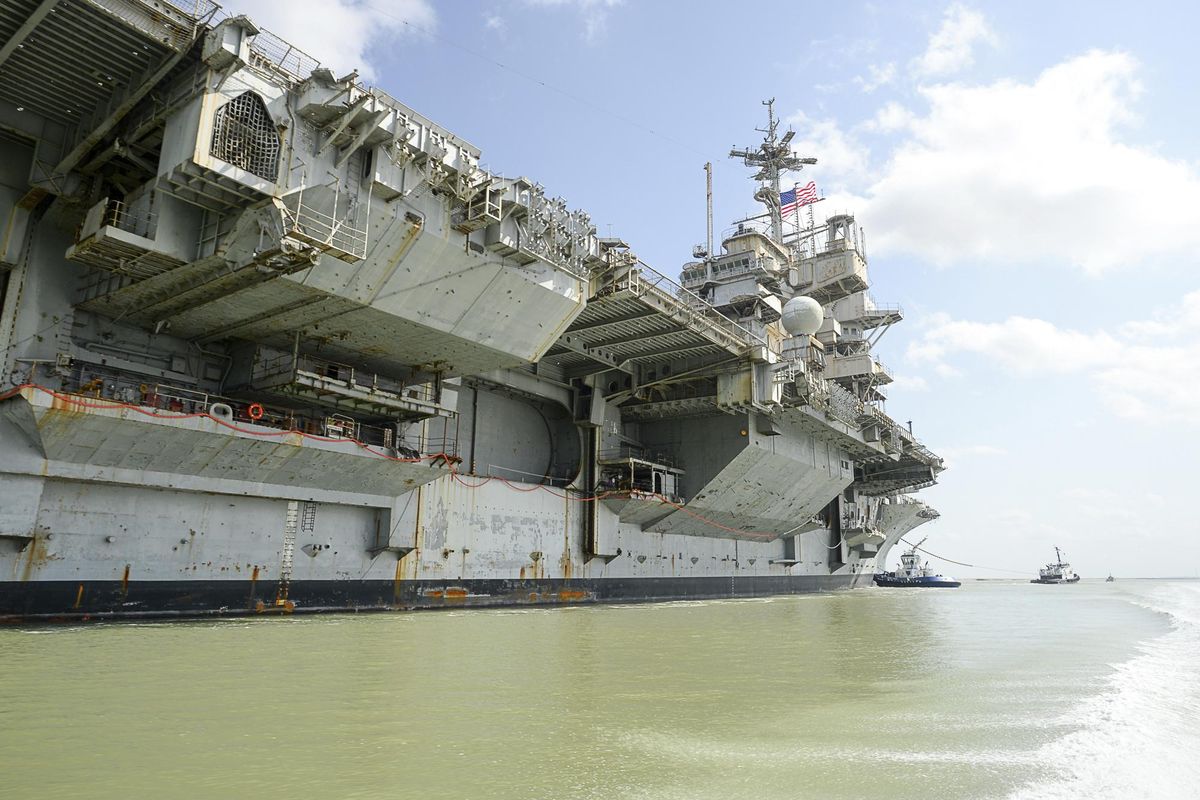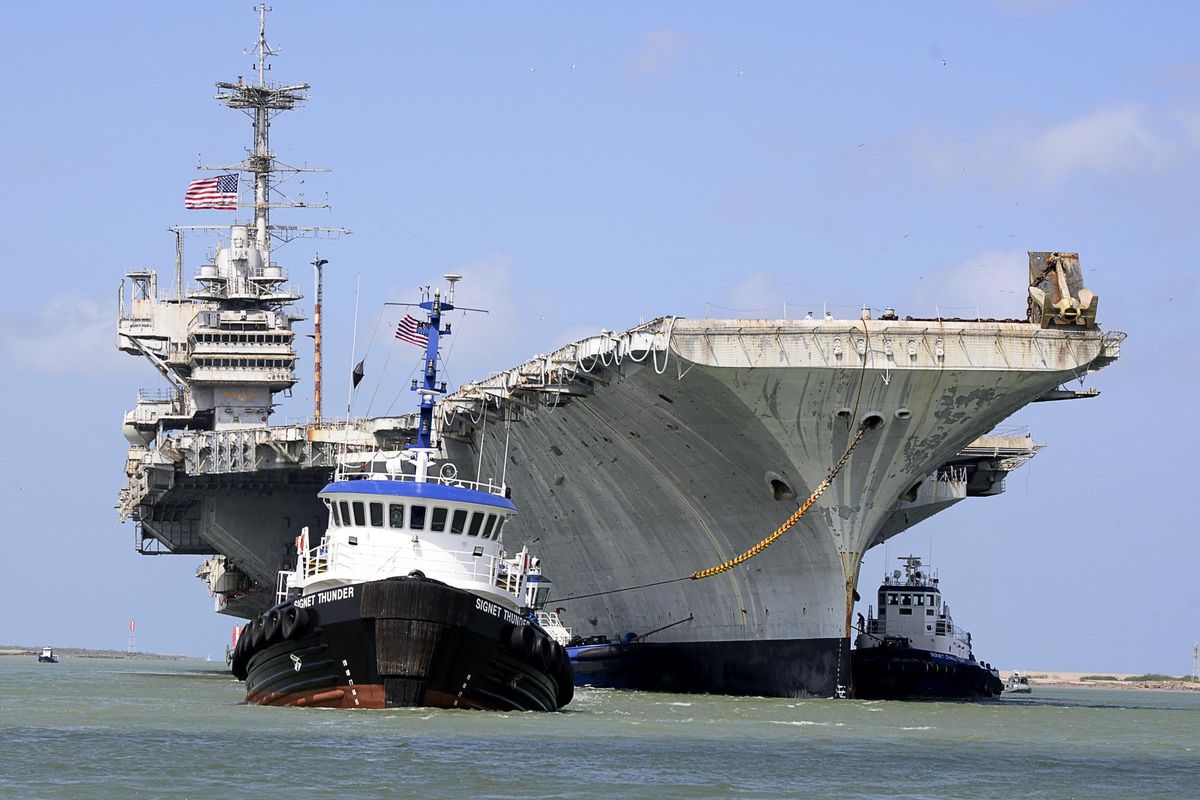Tribe, groups sue Navy over ship cleaning in Puget Sound
In this June 1, 2017, file photo, the decommissioned USS Independence is towed on her final voyage to the Port of Brownsville near Port Isabel, Texas. The Suquamish Tribe and two environmental groups have sued the U.S. Navy, alleging the Navy cleaned the mothballed 60,000-ton USS Independence aircraft carrier in Puget Sound in violation of federal clean-water laws. The ship was cleaned in waters near Bremerton, Wash., in January and February before it was towed to Brownsville, Texas, earlier this month to be dismantled. The tribe, Washington Environmental Council and Puget Soundkeeper Alliance say the Navy scraped the ship’s hull and sent toxic copper-based paint, zinc and other pollutants into the water. (Jason Hoekema / AP)
SEATTLE – The Suquamish Tribe and two environmental groups are suing the U.S. Navy, saying it sent harmful pollutants into Puget Sound when it cleaned a decommissioned aircraft carrier near Bremerton.
The mothballed 60,000-ton (60,963-metric ton) USS Independence was cleaned in waters near Bremerton, Washington, in January and February before it was towed to Brownsville, Texas, this month to be dismantled.
The tribe, Washington Environmental Council and Puget Soundkeeper Alliance allege that the Navy violated clean-water laws by not obtaining a permit when it scraped the ship’s hull and underwater components and sent pollution into the water.
The lawsuit was filed in federal court in Tacoma.
While the decommissioned Independence is no longer at Naval Base Kitsap, other mothballed Navy ships remain, the groups said. They want to ensure that the Navy doesn’t conduct similar hull cleaning activities on those ships in the future and without obtaining a permit.
A Navy spokeswoman did not immediately provide a comment when reached Wednesday.
Navy spokeswoman Colleen O’Rourke previously said skilled divers gently scrubbed marine growth on the hull of the ship to prevent the possible transfer of invasive species.
The Suquamish Tribe estimates that between 49 to 73 dump truck loads of debris such as paint chips, copper, zinc and other metals from the former USS Independence went directly into Sinclair Inlet, a waterway already suffering from water-quality problems.
The tribe said it raised concerns about the potential impact of the project with the Navy. But the Navy moved forward without determining what impacts the cleaning would have on Puget Sound, Suquamish Tribal Chairman Leonard Forsman said in a statement Wednesday.
“Though we do respect the Navy’s mission, we do not believe they should be exempt from regulations that other vessel owners routinely follow,” he said.
Studies have shown that copper is harmful to salmon and other marine life because it can disrupt the fish’s sense of smell, which they use to avoid predators or find their spawning streams.
Mindy Roberts, Puget Sound director for the Washington Environmental Council, said Wednesday that the region has spent a lot of money cleaning up decades of contamination in Puget Sound.
“We cannot have the Puget Sound Naval Shipyard disregarding reasonable pollution controls,” she said.

